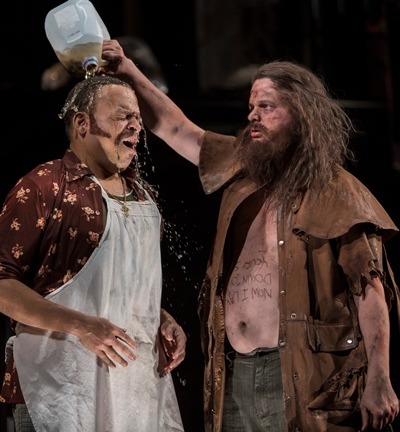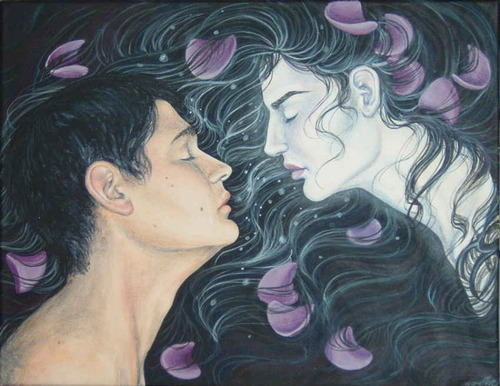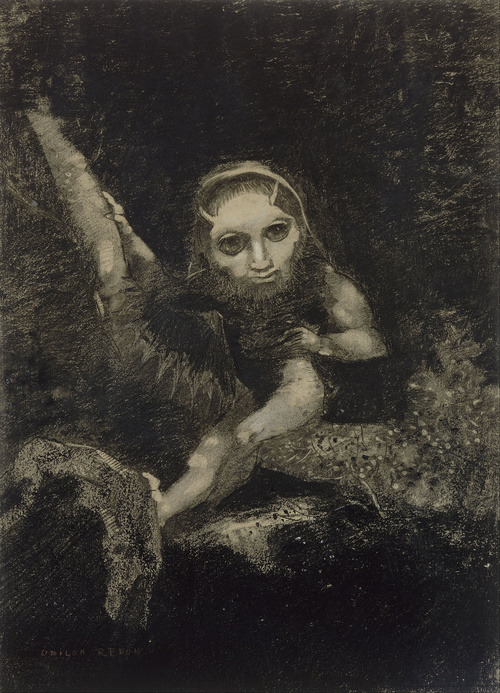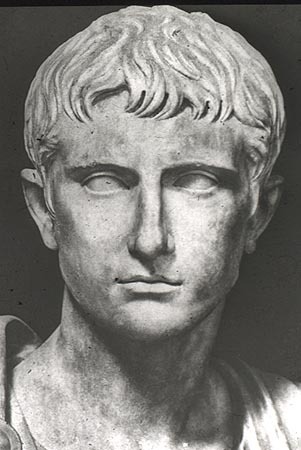5. Minor character [1] Lucio

Lucio lies in order to stir up trouble, but he tells some serious truths about society and humanity. A mischievous knave, a flippant rascal, and a helper and a hinderer, Lucio frequently skewers puritanical laws against sexuality and other human “sins.”
5. Minor character [2] Barnardine

Barnardine (right), a prisoner of nine years, says only a few lines, yet he is highly memorable. The characters in Measure for Measure describe him best:
Provost: A man that apprehends death no more dreadfully but as a drunken sleep; careless, reckless, and fearless of what’s past, present, or to come; insensible of mortality, and desperately mortal.
Duke: He wants advice.
Provost: He will hear none. He hath evermore had the liberty of the prison: give him leave to escape hence, he would not: drunk many times a day, if not many days entirely drunk. We have very oft awaked him, as if to carry him to execution, and showed him a seeming warrant for it: it hath not moved him at all.
He appears in a hilarious exchange in which he is threatened with execution, which he refuses, due to being too drunk. Amazingly, this excuse works, as he marches right back into his cell to live and drink another day.
5. Minor character [3] Mercutio

In the above painting, the aptly named Mercutio is shown with fairy midwife Queen Mab. She appears in a detailed speech that displays Mercutio’s imagination. He also possesses a bawdy sense of humor, which makes him delightful if sometimes overbearing company. However, he can quickly lose his temper or sink into melancholy. Mercutio is both avid entertainer and haunted, tragic figure. Shakespeare supposedly said “he was forced to kill him in the third act, to prevent being killed by him.” Check out Zeffirelli’s 1968 Romeo and Juliet for John McEnery’s beautiful interpretation of the character.
5. Minor character [4] Caliban

If the spirit Ariel is protagonist Prospero’s ethereal superego, Caliban is his id. Born to a witch, is he man or monster? A crude portrait of an indigenous, Irish, or African slave? A sympathetic underdog or a base creature? Though ignorant and subversive, Caliban can be achingly poetic. One of Shakespeare’s most debated characters, Caliban is one to fear, laugh at, and cry for.
5. Minor character [5] Octavius

Octavius appeared briefly in Julius Caesar, but Mark Antony was the young manipulator who made an impression in his rise to power. In Antony and Cleopatra, Antony is older, and Octavius is the up-and-coming threat. When others celebrate and drink, Octavius abstains and observes. His icy calculation is frightening, but his motives might actually be loftier than our hedonistic protagonists’.

No comments:
Post a Comment